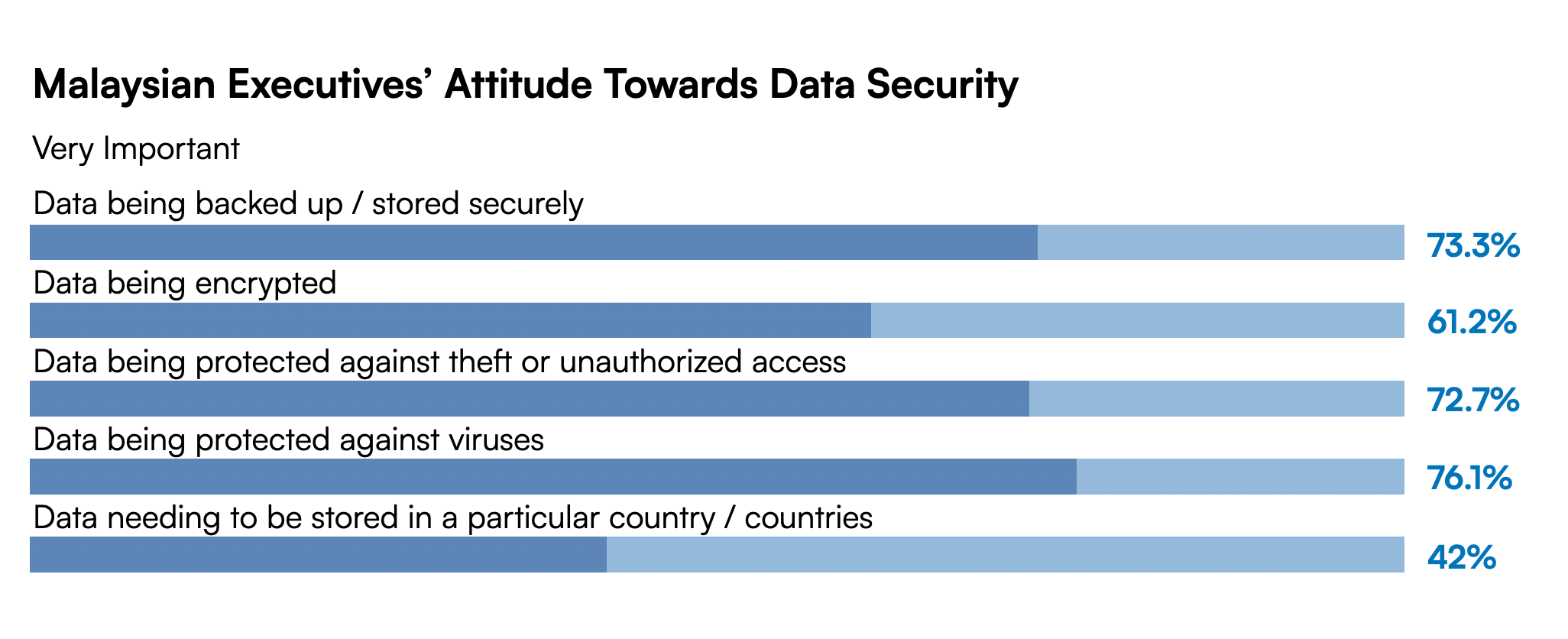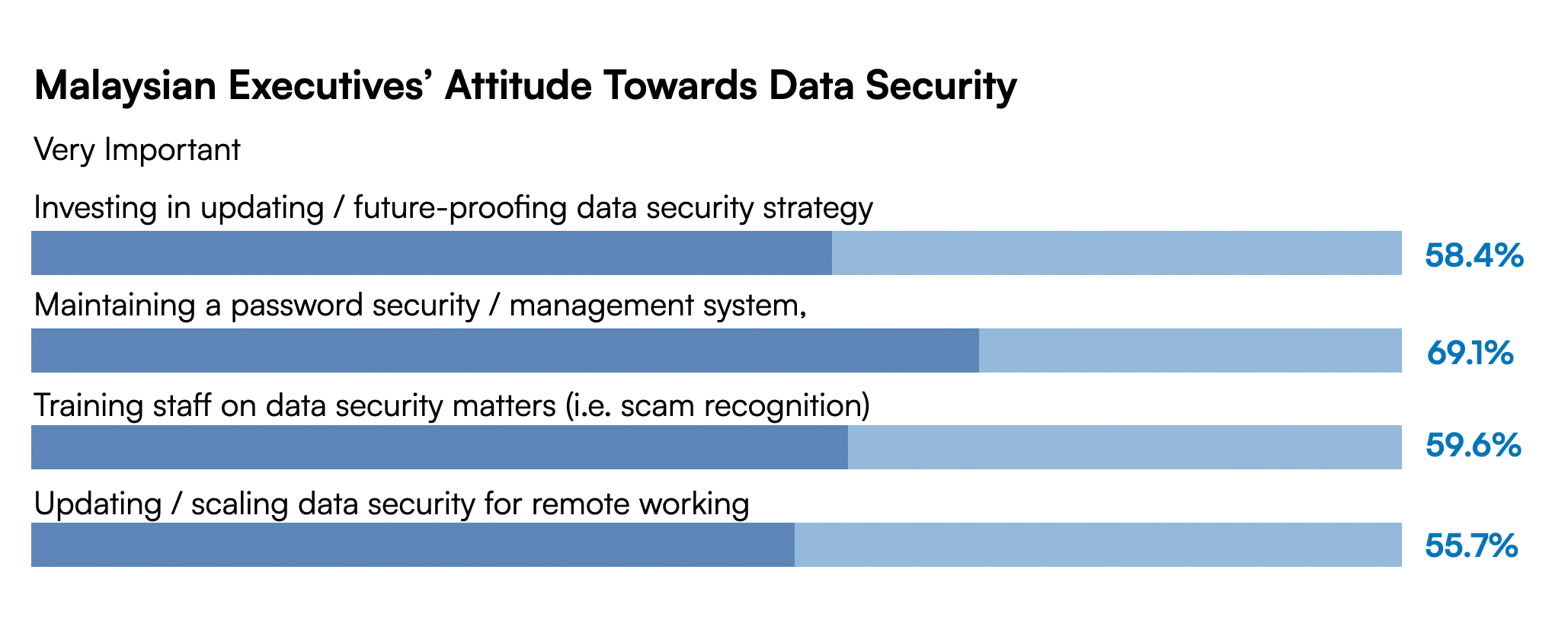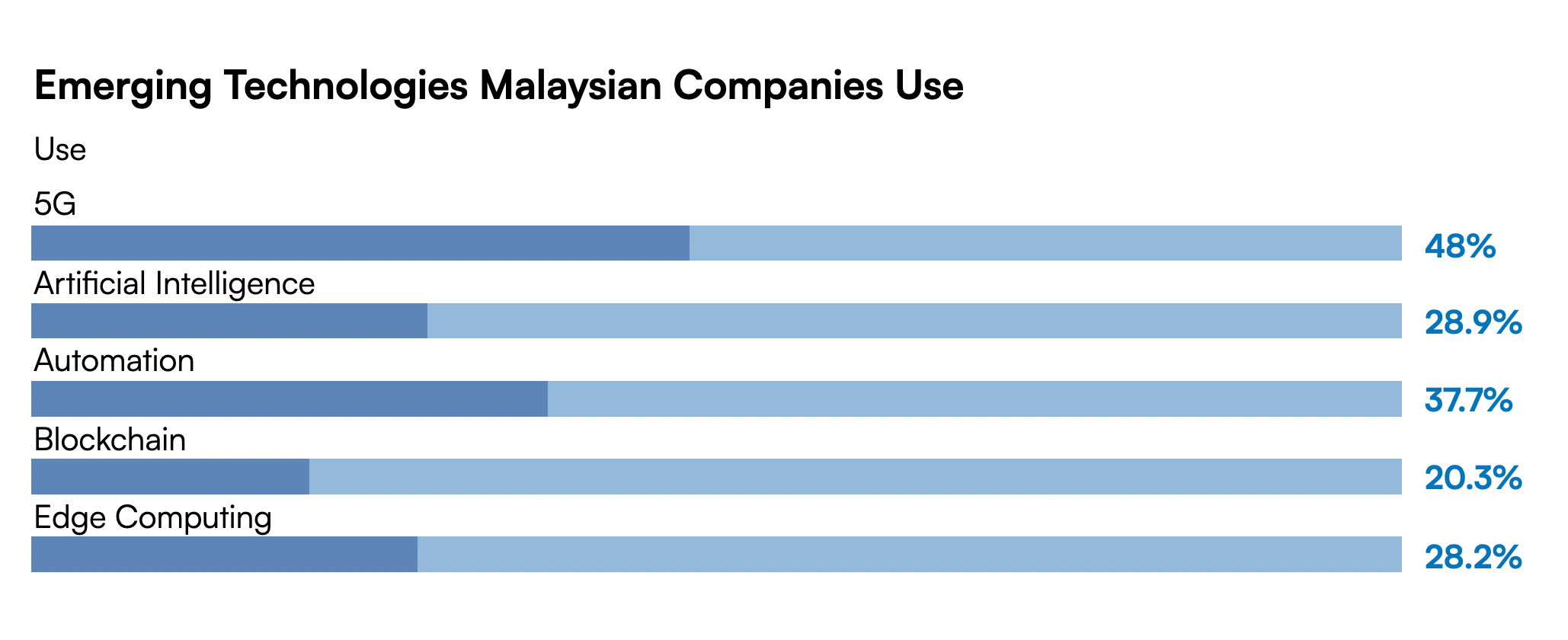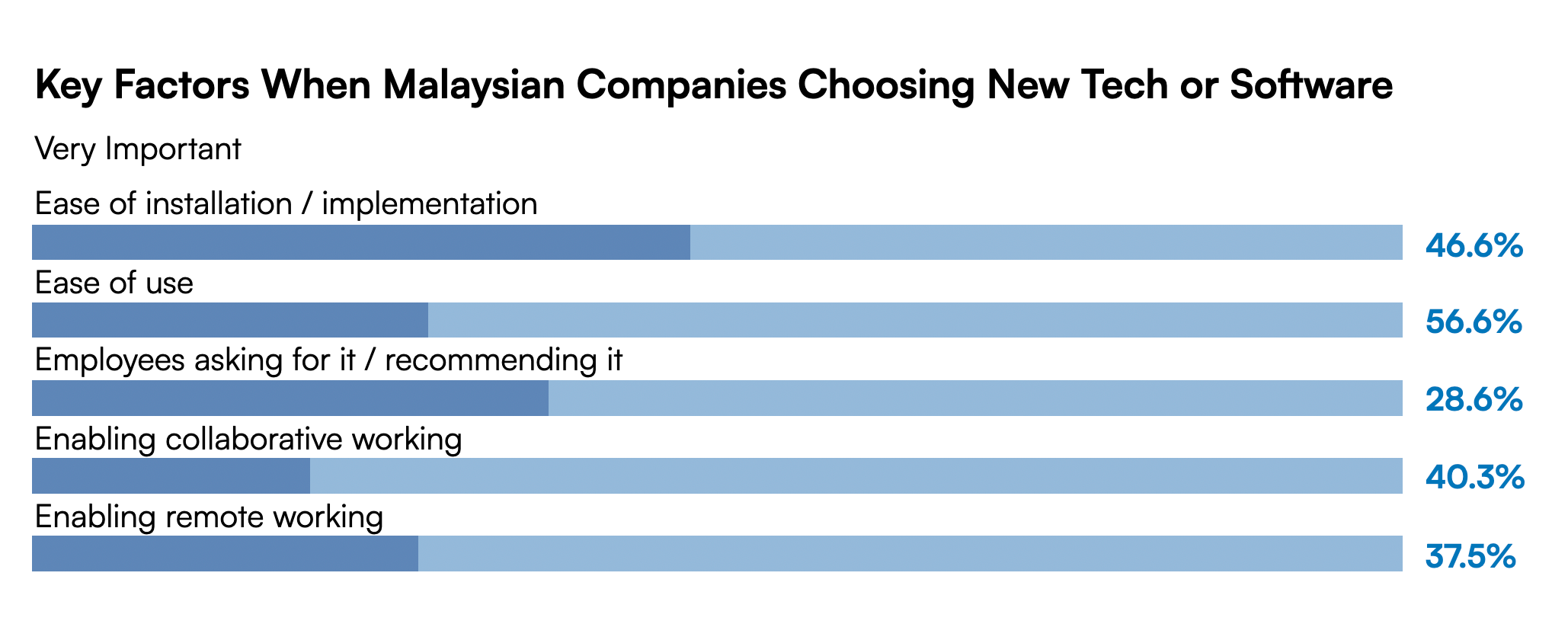Recently, Malaysia has advanced considerably in its digitalisation efforts, marking a significant transition towards a more technologically sophisticated and interconnected society. The country’s dedication to digital transformation is visible across multiple areas, such as government services, education, and various industries. Through initiatives like the Malaysia Digital Economy Blueprint (MyDIGITAL) and investments in digital infrastructure, Malaysia seeks to strengthen its global competitiveness. Government initiatives, technological advancements, and the public’s attitude and perception of the importance of digital transformation drive this advancement.
As such, in this article, we delve into the current state of digitalisation in Malaysia, and how businesses operating in Malaysia can improve their level of digitalisation.
The Role of Modern Digital Tools in Transforming Malaysian Businesses
Malaysia, a country that has been undeterred by the challenges that have slowed other economies in recent years, has thrived thanks to the early adoption of digital technology and innovative business models. The digital economy in Malaysia is one of the fastest growing sectors, being the recipient of 15.7 billion dollars in investment in the third quarter of 2022.
In the dynamic and competitive business environment of Malaysia, integrating modern digital tools has become crucial for companies aiming to thrive and maintain a competitive edge over their competitors. The adoption of these technologies is transforming various aspects of business operations, driving efficiency, and fostering innovation. However, what are the concerns that businesses are facing, and how can businesses solve these challenges?
In a survey conducted on 153 high-level Malaysian executives from various industries including accounting, manufacturing, construction, real estate and financial services. OpenMinds found that 73.3% of respondents believe that securing data storage and backups is the most crucial step towards data security.


This indicates their perceived importance of data security and the need to avoid data mismanagement. This high percentage indicates a widespread recognition that data is one of the most valuable assets for businesses. Securing data storage and backups is seen as fundamental to protecting against data loss due to hardware failures, cyberattacks, or other unforeseen incidents. The focus on securing data storage and backups suggests that businesses are not just reactive but are taking proactive measures to protect themselves against potential threats. This is a sign of digital maturity, where businesses are not just adopting digital tools but also implementing the necessary security protocols.
As a consequence of living in the digital age, confidentiality and data protection are more important than ever. Businesses prioritise the strength of their anti-virus security even more, as the threat of implications and reputation damage is significant. For example, in December 2022, the information of almost 13 million Malaysian citizens was impacted by a large data breach, affecting major corporations. This incident highlighted major concerns about the state of cybersecurity in Malaysia, identifying the need for stronger measures to prevent any future breaches.
Additionally, this incident became the catalyst for more cyberattacks, as hackers identified Malaysia’s cybersecurity as a weakness that could be taken advantage of. The following year, 2023 recorded the highest number of data breaches, recording 15 cases a week involving ransomware attacks. This situation sparked significant concern over cybercrimes, leading to losses of millions of ringgit annually. This has been a worrying pattern since 2016 and is steadily increasing.
However, the silver lining in all this is that businesses and individuals are more aware of the potential risks associated with cybersecurity, looking to improve their security at all times to prevent future breaches. As such, this has changed the overall attitude of high-level executives and their perception towards the importance of data security, valuing the need for strong security for their business.
Furthermore, 69.1% of respondents believe that it is crucial to maintain a password security/management system and to train staff on data security matters to ensure the protection of sensitive information and reduce the risk of cyber threats.


The majority of respondents recognise the significance of implementing robust password security measures as a critical component of their overall cybersecurity strategy. The finding underscores the necessity of regular staff training on data security, emphasising that human error is often a weak link in security breaches. Educated staff are better equipped to recognise and respond to potential threats.
Emerging Technologies (5G, AI, Automation and more) Shaping Malaysia’s Business Landscape
As of 2025, Malaysia is actively embracing a range of emerging technologies across various sectors. These technologies include 5G, the use of AI, and business automation. Therefore, which of these technologies are the key reasons for success in the latest business landscape?


Based on our survey results, only 28.9% of respondents currently use AI tools in their work. Meanwhile, the United States, the home of thriving businesses and mega conglomerates, found that 90% of companies are either using or exploring the use of AIs in their businesses.
It is common knowledge that modern businesses require modern solutions: the utilisation of AI and its integration into their respective businesses. When comparing the difference between an avid AI user and a non-AI user, it is evident that AI-powered companies are naturally more efficient, and have higher productivity. The extreme disparity in AI usage between Malaysia and the United States highlights the difference between both countries, showcasing the difference in priorities. This inadvertently results in the Malaysian economy being less efficient with their resources, as they require more manual manpower. Therefore, Malaysian companies should look to utilise AI in their business and follow the businesses in the United States as a model of how businesses should be run in the future.
While there is a gap in terms of exposure and adoption, most Malaysians understand that AI has the potential to transform how we work. The 2024 Work Trend Index revealed an emerging BYOAI (bring your own AI) culture, akin to the well-known BYOD (bring your own device) trend, with 83% of Malaysians now opting to use their own AI tools in the workplace. There are several notable factors that businesses prioritise when trying to incorporate modern systems into their operations.
One of these factors is the convenience of implementing new software for the company. Based on our research, 56.6% of respondents believe that ease of use is the most important factor when choosing new tech or software for their business. Businesses prioritise tools that are intuitive and easy to navigate. This indicates that complex or difficult-to-use software might be less attractive, even if it has advanced features. Proper training can mitigate the resistance to change, as employees feel more prepared and supported during transitions.


Conclusion: Navigating the Future of Digitalisation in Malaysia
Malaysia is making substantial progress in digitalisation, marked by significant strides across various sectors from both the government and private industry. The nation’s strategic focus on advancing its digital infrastructure, promoting innovation, and fostering a digital economy is evident in the initiatives being implemented by the government such as MyDIGITAL. The ongoing efforts to enhance digital infrastructure are pivotal in driving the country towards becoming a regional leader in digital technology.
If you would like to understand more about what kind of services we offer and how they can help your business, drop us an email here.

![Digital Branding [Part 2]: The Results 6 openminds-market-insights-digital-branding-part-2-the-results](https://www.openmindsresources.com/wp-content/uploads/2023/11/openminds-market-insights-digital-branding-part-2-the-results.jpg)
